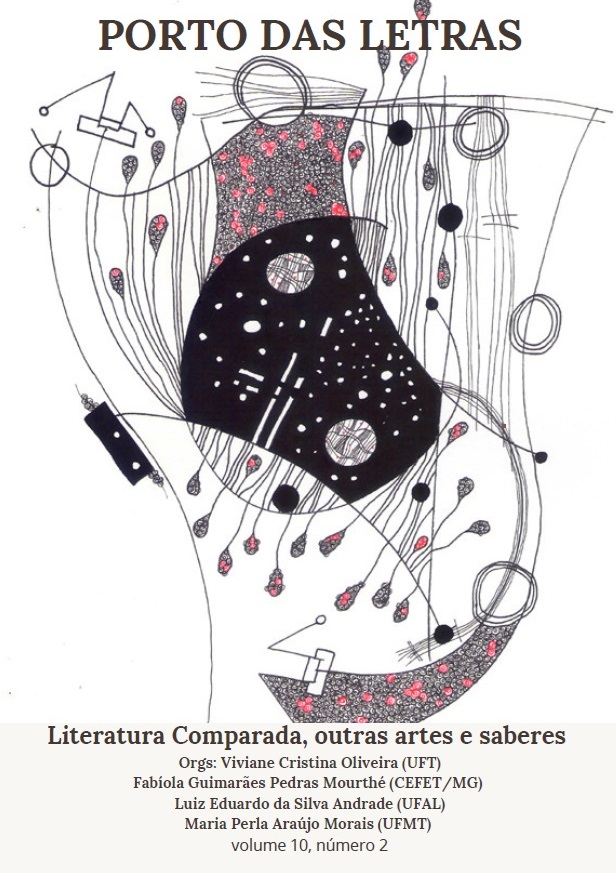The Fictional Filter
How Videogames Challenge Traditional Paradigms of Fictional Reconstruction
DOI:
https://doi.org/10.20873.24221Abstract
This article discusses the concept of fiction in relation to the representational arts and argues that videogames introduce a new convention for fictional reconstruction, different from other paradigmatic conventions employed in more traditional art forms. We begin by providing an account of how fiction has been conceptualized in relation to the art of literature by author such as Searle (1975), Ryan (1980), and Iser (1993), and how it is conceptualized in the art of videogames following the theoretical propositions of authors such as Walton (1990), Juul (2005, 2014), and Thon (2016). We then propose the concept of “fictional filter” to designate an interpretive competence developed by players in their process of videogame literacy, which conditions how fictional worlds are to be reconstructed based on the semiotic representation presented by videogames. Finally, we argue for the validity of our proposed concept by employing it in the analysis of three historically removed games of similar genres: Deus Ex (ION STORM, 2000), Fallout: New Vegas (OBSIDIAN ENTERTAINMENT, 2010), and Disco Elysium (ZA/UM, 2021). We were able to conclude that the concept of the fictional filter may be a useful tool in describing and discussing the poetical and aesthetical peculiarities of the art of videogames.
Keywords: fiction; videogames; fictional worlds; fictional filter.
Literaturhinweise
BACKE, H.-J. “Deathloop”: the meta(modern) immersive simulation game. Game Studies. Vol. 22, N. 2, 2022. Retrieved from: https://gamestudies.org/2202/articles/gap_backe. Access: 11 mar. 2023.
CAILLOIS, R. Man, play and games. Translated by Meyer Barash. Urbana: University of Illinois Press, 2001.
CALVINO, I. If on a winter’s night a traveler. Translated by William Weaver. Orlando: Harvest Books, 1982.
FRASCA, G. Videogames of the oppressed: videogames as a means for critical thinking and debate. Thesis (Masters in Information Design and Technology) – School of Literature, Communication and Culture, Georgia Institute of Technology. Georgia, 128 p. 2001.
GALLOWAY, A. R. Gaming: essays on algorithmic culture. Minneapolis: University of Minnesota Press, 2006.
GENETTE, G. Narrative discourse: an essay in method. Translated by Jane E. Lewin. Ithaca: Cornell University Press, 1980.
HUIZINGA, J. Homo ludens: a study of the play-element in culture. London: Routledge & Kegan Paul, 1949.
INSOMNIAC GAMES. Spider-Man. [S.l.]: Sony Interactive Entertainment, 2018. Videogame.
ION STORM. Deus Ex. [S.l.]: Eidos Interactive, 2000. Videogame.
ISER, W. The fictive and the imaginary: charting literary anthropology. Baltimore: The Johns Hopkins University Press, 1993.
JUUL, J. Half-real: videogames between real rules and fictional worlds. Cambridge, Massachusetts: The MIT Press, 2005.
JUUL, J. On absent carrot sticks: the level of abstraction in video games. In: RYAN, M.-L.; THON, J.-N. (Eds.) Storyworlds across media: toward a media-conscious narratology. Lincoln: University of Nebraska Press, 2014.
NAUGHTY DOG. The Last of Us. [S.l.]: Sony Interactive Entertainment, 2013. Videogame.
OBSIDIAN ENTERTAINMENT. Fallout: New Vegas. [S.l.]: Bethesda Softworks, 2010. Videogame.
RYAN, M.-L. Fiction, non-factuals, and the principle of minimal departure. Poetics. Vol. 9, p. 403-422, 1980.
SALEN, K.; ZIMMERMAN, E. Rules of play: game design fundamentals. Cambridge, Massachusetts: The MIT Press, 2004.
SEARLE, J. R. The logical status of fictional discourse. New Literary History. Vol. 6, N. 2, p. 319-332, 1975.
THON, J.- N. Transmedial narratology and contemporary media culture. Lincoln: University of Nebraska Press, 2016.
WALSH, R. Fictionality and mimesis: between narrativity and fictional worlds. Narrative. Vol. 11, N. 1, p. 110-121, 2003.
WALTON, K. L. Mimesis as make-believe: on the foundations of the representational arts. Cambridge, Massachusetts: Harvard University Press, 1990.
ZA/UM. Disco Elysium. [S.l.]: ZA/UM, 2021. Videogame.
Downloads
Veröffentlicht
Zitationsvorschlag
Ausgabe
Rubrik
Lizenz
Os autores concordam com os termos da Declaração de Direito Autoral, que se aplicará a esta submissão caso seja publicada nesta revista (comentários ao editor podem ser incluídos a seguir).

